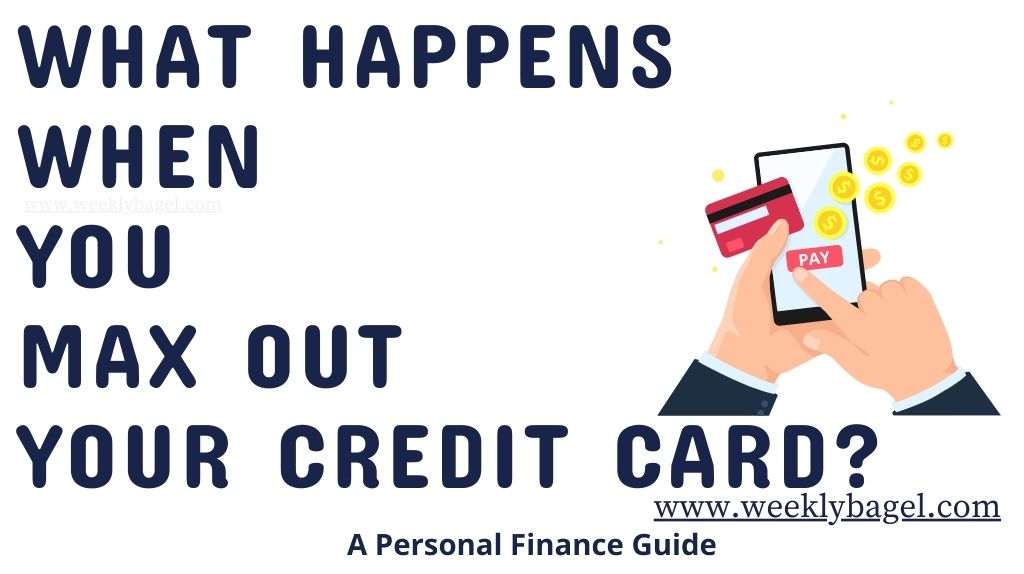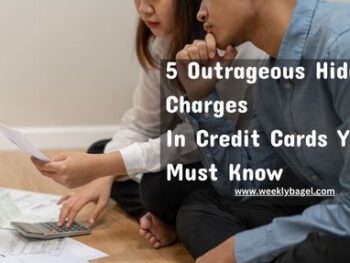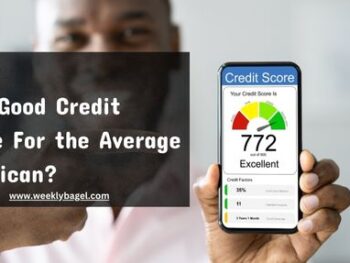
It is bad to max out your credit card. Besides the enormous stress which comes with paying it off, a lot of things change if you go past your credit limit. There are consequences to going over a credit card limit. A credit card company sale representative may not tell you about all of these, but the consequences are always included in the terms and conditions.
Hence, why I always recommend reading through a credit card’s terms and conditions thoroughly. This is prior to getting your first credit card. It may seem like a lot of words, but understanding the policies will save you potential headaches in the future.
On this article, I will be discussing the negative impact of going over your credit card limit. It just does not increase your overall debt, but makes it hard for you to enjoy your monthly income again. Here is what I mean below.
What Happens If You Max Out Your Credit Card?
Here are what happens to your life, when you exceed your credit limit.
1. A Maxed Out Credit Card Affect Credit Score
Your credit score will be impact negatively each time you maxed out a credit card. This is especially, when you struggle to pay your monthly dues. On what ruins your credit score, I discussed a maxed-out credit card can easily cause debt delinquency. Credit card debt delinquency is usually penalized by credit card companies.
Often, they get penalized by deducting points from your credit score. This is a result of a bad credit report filed by the bank whose credit card you maxed out. Do you remember how credit score and credit report work, good reader?
If you own a credit card with a monthly payment, bank will always report your ability to pay back credit debt to a credit bureau. I talked about this process on the differences between credit and credit score. Credit bureaus build a credit history on you based on what banks report about your ability to pay back debts. As a result, a credit score is generated to rate your debt repayment ability.
This is what is called a credit score.
So, a maxed-out credit card may affect your credit negatively because credit card utilization greater than 30% can decrease your credit score. This is why I always recommend keeping your credit card utilization under 30% of your credit limit. Banks include credit card usage over the credit limit in credit reports.
2. No Access To Credit
Your credit will decline, if it is maxed out. If you remember what a maxed-out credit card means, it means you have used up all the available credit on your credit card. As a result, the credit card issuer has to make sure you do not continue to utilize more than you can afford to pay back.
They cut off access to their credit line.
You will not be able to purchase anymore with the maxed-out credit card. The restriction is there, until you have been able to lower the debt on the credit card. Here is an example of what I mean.
Let us say the credit card limit was $3000 and you have used it up. You will not be able to make payments with the credit card, until your credit card debt is lower than $3000. Do you understand now?
A credit card max out locks your credit card, so you will not continue using it. You can unlock the credit card again, when you have made payments toward the debt. Or, call the credit card issuer to negotiate.
3. Your Interest Rate Increases
Maxing out a credit card will definitely increase the interest rate. If you are an avid reader of my articles, you will agree I always stress how the interest rate of credit cards does not stay fixed. It varies based on how much debt you carry on the credit card. You can better understand how credit card interest rate work by reading important research to do before getting a credit card.
A credit card issuer wants to make money. It is always looking for opportunities to maximize the revenue its credit cards generate. If you go over your credit limit, it is an opportunity for them to make money. It means your credit card debt had increased. Therefore, your interest rate has to increase so the issuer can make money.
I cannot stress the importance of understanding interest rate before you apply for a credit card. This is because it is rare to find credit cards with fixed interest rate. Most, if not all bank issued credit cards with variable interest rates.
Hence, why you should try not to exceed the credit limit on your credit card. I advice you keep your total debt under 30% of your overall credit card limit, in order to keep your initial interest rate.
4. A Maxed-Out Credit Card Increases Monthly Minimum Payment
If you max out your credit card, your monthly minimum payment will increase. The logic is because your debt increased because you exceeded your credit limit. So, any credit card issuer will be trying to get their money as fast as it could from you.
There are two reasons why your monthly minimum payments increase, dear reader.
Firstly, your minimum payment increases due to the fact you have more debt now. You have an increase in monthly interest rate and in total credit card debt. Therefore, your monthly payment is expected to jump.
For example,
Let us say you were paying 20% on a credit card debt of $630 on a credit limit of $1200. It means you are repaying a minimum of $126 monthly to the credit card issuer on your $630 debt. Assuming you maxed out the $1200, let us say your new interest rate is 25% now; your new minimum payment every month would be $300.
This is because your new interest rate of 25% and total debt of $1200 had influenced what you should be paying back monthly. Do you understand how a maxed-out credit card can increase your minimum payment now?
Any reasonable credit card issuer will try to get their money back from you as soon as it could. This is because they know with all these new changes, you may have a difficulty time paying back your debt. It may sound counter-intuitive to you but it is how it works.
5. Difficulty Paying Off Your Credit Debt
As mentioned on the previous point, you may experience difficulty paying off your credit card debt. This is especially, when your income status has not changed for the better. In this situation, some people default on their credit card debt because they cannot afford to pay it off.
Here is what happens if you stop paying your credit card debt.
You are going to be penalized. Not just a little fee, but a big fee. I kid you not, my dear reader. Sometimes, the penalty for late credit card payment can be as high as $35 in addition to your minimum monthly payment and interest charge. This is besides the outrageous hidden charges in credit cards.
Now, imagine when you miss a payment. A bad credit report will be sent to a credit bureau. Your credit score will drop. You will be charged a penalty fee. In all, your total credit card debt and interest rate will increase as a consequent. It is a bad idea, is it not?
What To Do When You Maxed Out A Credit Card
I recommend you call the issuer to negotiate on interest rate and monthly minimum payment. This is especially, when you know you will experience difficulty paying back the debt. Sincerely speaking, some credit card issuers do not make it easy to pay off a maxed-credit card.
The last thing you want is for your credit card debt to take forever to pay off. Trust me, it can take a long time to pay off. I speak from experience when I write about these things. A credit card debt as little as $2000 may take two years to pay off without a payment plan.
It all depends on your monthly income, total credit card debt, interest rate and minimum payment on the card. If you ask me, I would just recommend using effective ways of getting out of debt. This includes living within a budget in order to reallocate some money into paying more than just your monthly minimum payment.
If you just stick to paying the minimum payment recommended by the credit card issuer, it will take forever to pay off. This is because they set it up in such a way where more than 40% of the minimum payment goes to the interest rate, while the remaining 60% goes to total credit card debt. I advise paying more than the minimum they suggest.
On the whole, the best advice is not to max out your credit card. As you can see from my article, the cons greatly outweigh the pros. The last thing you want, is for a huge part of your monthly paycheck to go into credit card payment. Would you agree, my fellow working class adult?




 How To Get A Voided Check From Chase
How To Get A Voided Check From Chase